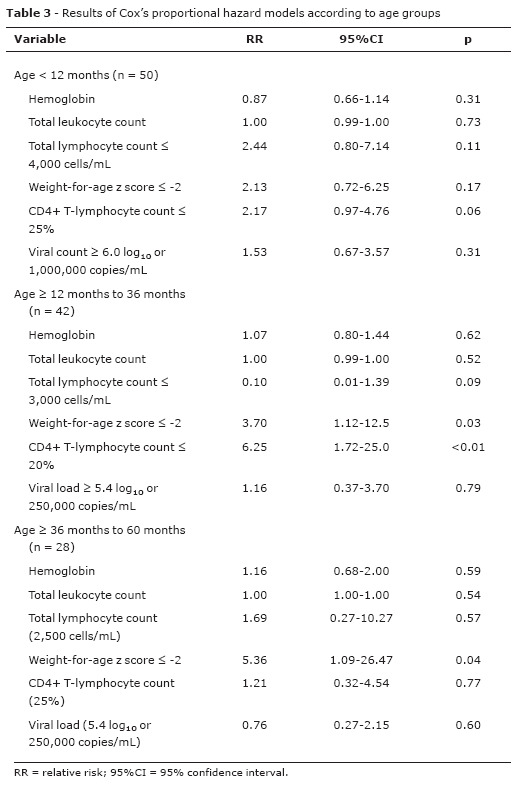OBJECTIVE: To analyze total lymphocyte count, total leukocyte count, hemoglobin levels, nutritional status, CD4+ T-lymphocyte count and viral load as markers of disease progression and/or death in HIV-infected children. METHODS: This retrospective cohort study assessed antiretroviral naïve HIV-infected children who were asymptomatic or had mild and/or moderate symptoms. The events of interest were: progression to clinical category C (according to the classification of the Centers for Disease Control and Prevention - CDC, 1994) or death. Values of total leukocyte count, total lymphocyte count, hemoglobin, weight-for-age z score, CD4+ T-lymphocyte count and plasma viral load obtained at admission were considered in the risk analysis of events of interest. The population was stratified into age groups: < 12, > 12 to < 36, > 36 to < 60 months. RESULTS: One hundred and twenty patients, admitted between 1997 and 2003, met the inclusion criteria for the present study. The total median of follow-up duration was 7.4 months (25-75% interquartile range = 3.8-21.1). In the multivariate analysis, only CD4+ T-lymphocytes count, according to the categories of the World Health Organization, and weight-for-age z score ≤ -2 were predictors of risk for disease progression in children older than 12 months. In children younger than 12 months, none of the variables was associated with risk of progression. CONCLUSION: Nutritional status is an important aspect in the assessment of risk of disease progression in HIV-infected children older than 12 months.
HIV; children; weight; biomarkers; lymphocytes




